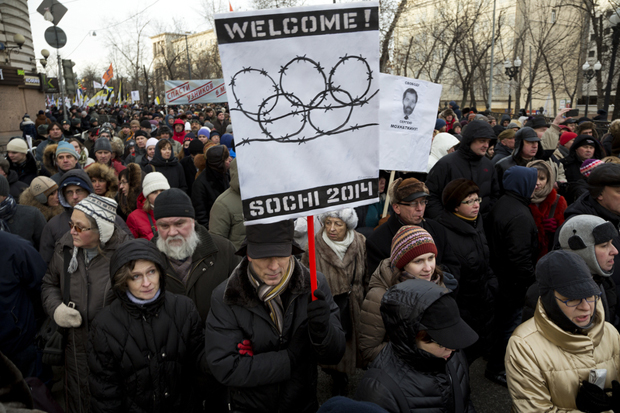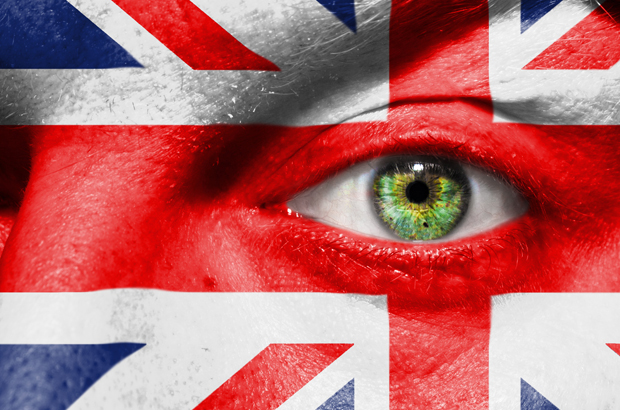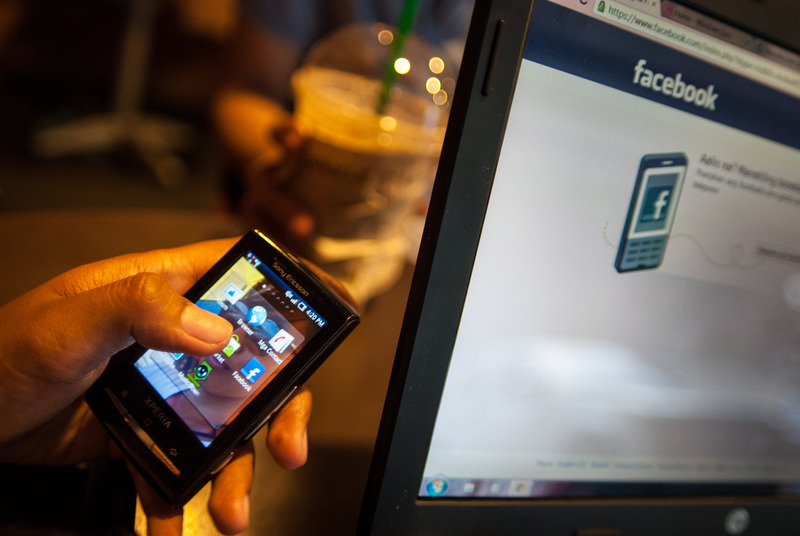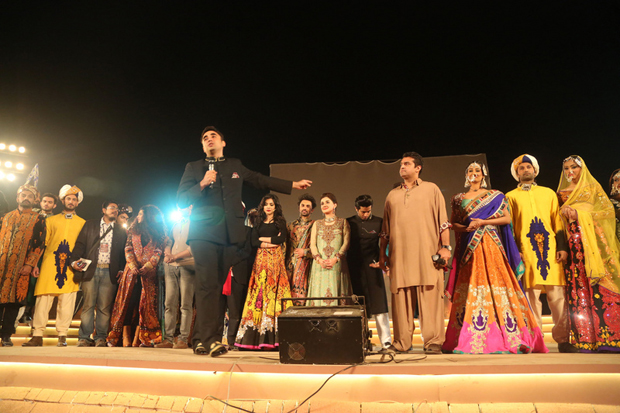5 Feb 2014 | News and features, Russia

Several thousand protesters marched through central Moscow on 2 February 2014 to call for the release of 20 people who were arrested after clashes between police and demonstrators on 6th May of 2012. Photo: Nickolay Vinokurov / Demotix
Media will face increased restrictions in the build up to the Winter Games in Sochi as Russian president Vladimir Putin tries to rehabilitate a damaged domestic reputation, experts suggest.
Tighter controls on dissident media, more proactive use of state news outlets to mold public consensus, and obstacles to foreign reporters operating in the region can all be expected as the games begin on 7 February.
While Russian authorities have hailed the Games as a triumph, ongoing disputes over the payment of migrant workers, the environmental impact of Sochi’s intensive development, forced evictions of residents, intensive security measures, and Russia’s controversial gay propaganda law have all generated a domestic backlash that many believe is being deliberately ignored by state media. On 17 October, 2013, Roman Kuznetsov, a migrant worker from the Russian city of Orenburg who had helped build the Media Centre for the Sochi Olympic Games, sewed his lips shut with a needle and thread in protest against his employer’s failure to pay him several months of wages. He carried a sign that explained “Please help get reporters attention! I am not from around here”.
In an interview with select global media, Putin explained “I would like the participants, guests, journalists and all those who watch the Games on TV and learn about them from the mass media to see a new Russia, see its personality and its possibilities, take a fresh and unbiased look at the country”. Close restrictions recently imposed on press activity suggest otherwise. Only a small number of Olympic Events have been cleared for coverage by local journalists, including the arrival of IOC delegations and formal updates offered by federal officials. Access to government activities is granted only to the All-Russia State Television and Radio Broadcasting Company.
In a report produced by the Centre for the Protection of Journalists, a number of local journalists allege a more proactive media strategy in addition to direct censorship. Several reporters suggested that it was fairly common for media that receive funding to be directly censored by the administration. Local journalists also reported that the All-Russia State Television and Radio Broadcasting Company often stage interviews, and had been passing off closely scripted lines as dialogue with ordinary residents of Sochi. According to Russian Government website Zakupki, which details financial transactions at all levels of Russian government, the Sochi administration has distributed some 32,628.600 rubles (US$988,788) to 17 media organisations, including four television channels, six newspapers, one magazine, three radio stations, and one informational agency. It is not clear what form the funds took.
Aleksandr Valov, founder of BlogSochi, which seeks to document the impact of the Games on Sochi’s residents, explains “One begins to understand why Sochi media only talk about the government’s achievements and keep silent about the problems. The popular saying ‘He who pays the piper calls the tune’ comes to mind.”
International journalists covering Sochi have also been closely curtailed. Police from the Russian Republic of Adygea neighboring Sochi repeatedly stopped, detained, and threatened a two-person crew from Norway’s TV2- the country’s official broadcaster of the Olympic Games. At every stop and in detention, officials questioned the journalists aggressively about their work plans in Sochi and other areas, their sources, and in some cases about their personal lives, educational backgrounds, and religious beliefs. In several instances they denied the journalists contact with the Norwegian Embassy in Moscow. One official threatened to jail them both, the journalists told Human Rights Watch. Dutch photojournalist Rob Hornstra was denied a Russian visa in an apparent attempt to stop him from doing further work in the turbulent North Caucasus, and American journalist David Satter was forcibly expelled from the country in December.
Since beginning his first term as president in 2000, Vladimir Putin has carefully controlled his media presence, closing a number of independent media outlets and amalgamating others with state bodies, whilst tightly controlling the presence of foreign media. Professor Owen Johnson teaches at the School of Journalism at Indiana University, and has researched the role of media in Russia intensively. He offers a simple explanation for the recent expulsions ‘”While it would seem that this runs counter to other more positive actions by President Putin recently, this might be designed to make visiting journalists more cautious,” Johnson said. “Putin is less concerned about world public opinion than he is about his continued support in Russia.”
Domestic attitudes to Putin are changing fast, according to Mikhail Dmitriev, former director of Russia’s State Run Centre for Strategic Research. Over the past year discontent in the country at large has deepened and broadened, spreading across all social groups and ages. While support for Putin is stable in St. Petersburg and Moscow, where incomes remain high, fluctuating fortunes in Russia’s rural regions is starting to generate distrust. Dmitriev said the latest focus groups show that Putin is less associated with stability and more with uncertainty. His past achievements are becoming a distant memory, and his recent stunts, such as flying with cranes or diving for ancient amphorae, merely cause irritation.
The Sochi Games, Putin explained in a conference with journalists, will be an important global symbol of Russian achievement and resurgence. For Putin, well-managed domestic media coverage seems an important strategic component of his long term success and survival.
This article was originally posted on 5 February 2014 at indexoncensorship.org
4 Feb 2014 | News and features, Politics and Society, United Kingdom

(Photo illustration: Shutterstock)
The coalition has found a novel way of making life harder for Britain’s journalists. Now it appears to have set itself the challenge of abandoning the reforms without losing face, too.
What’s at stake here is simple: the ability of journalists to protect their sources. This is critical. Without it confidence in journalism is undermined and fewer whistleblowers will come forward in the future.
This is why the government’s latest bid to make life harder for Britain’s hacks – coming so soon after the gagging bill – is so very deeply worrying.
The plans effectively scrap legal guarantees that journalists’ lawyers can contest “production orders” demanding the surrender of key documents.
The measure forms part of the coalition’s deregulation bill – a weighty piece of legislation which aims to scrap a huge pile of red tape it believes has been weighing the UK down for years.
The zeal with which ministers have pursued this bonfire of the rules has risked stripping back important safeguards which make the UK a better country.
For 30 years the regulations governing police applications for the production of journalistic material by the media have been largely unchanged.
Whenever hacks have found their documents being seized by the long arm of the law, their lawyers have had a chance to contest the handover of photographs, files, notebooks and the like.
The result has been the media has had a chance to put across its side of the story when judges hear applications for the production orders.
In legal circles, the name for what happens when opposing lawyers have an argument in front of a lawyer is known as ‘inter partes’ – literally, between the parties.
If the deregulation bill passes unamended, they’d have to find a different name altogether. Because only one of the parties would be present.
This particular bit of red tape would make sure the police have it easy when it comes to winning over wavering judges.
As the responsible Cabinet Office minister Oliver Letwin glibly put it, newspapers would be losing “the guarantee of their day in court”.
The Newspaper Society, which represents titles read by a total of 31 million people a week, puts it another way.
The right to argue against these production orders, it says, are “vital to the Act’s protection of journalistic material against inappropriate police action… they are integral to parliament’s intention to safeguard freedom of expression, facilitate public interest reporting and maintain media independence of the police”.
In short, they really matter. Without them, it’s feared, the courts could decide – very reasonably – that the Commons doesn’t care as much as it did about safeguarding confidential sources from police officers.
There would be nothing to stop future governments undermining or even scrapping the existing safeguards altogether.
One of the most significant changes the committee which decides on these criminal procedure rules could make is to extend the use of ‘closed material procedures’.
These, as the Guardian’s chief lawyer Gill Phillips has written, “contravene a fundamental common law principle of open justice”.
Secret courts are never good news. So it’s no surprise she concludes: “This appears to be yet another backdoor attempt to limit and restrict essential and hard fought journalistic protections.”
Monday’s debate on the legislation was only on its second reading, which means it is at the start of its long journey through the Commons and then the Lords. There is plenty of time, it’s felt, for the government to make a concession and abandon this particular change.
But the recent experience of the gagging bill – a tortuous, hard-fought process which resulted in concessions that quelled the opposition without actually fundamentally changing the feared effect – suggests that seemed improbable.
That was the feeling, at least, before the minister stood up and, in response to a teed-up question from media committee chair John Whittingdale, began what looked a lot like the first stage of a government retreat.
“I have good news,” Letwin announced ingratiatingly at the despatch box. He explained the criminal procedure committee is to be prevented from weakening the rules.
“As it was no part of the intention of clause 47 to do that,” Letwin said, “we are now looking for ways specifically to exempt journalism and all such media items from the clause.”
This is what even cynical campaigners admit is a breakthrough. But it is not yet a white flag. All Letwin has agreed to is a further consultation – an opportunity for newspapers, broadcasters and others in the media to put their views forward.
It’s the same old process, isn’t it? The government blunders into proposing deeply damaging legislation and suddenly finds itself forced on to the backfoot, with its credibility at stake, in an area it should never have gone anywhere near.
In this case, MPs are hoping the coalition has been caught early enough for meaningful changes to take place.
As Tory backbencher David Davis gently suggested, in a desperate effort to be so sensitive to ministerial feelings it sounded almost sarcastic: “This is an area where some of the rules are constitutionally quite important.” That’s one way of putting it, anyway.
Letwin is willing to talk. Will he be willing to move, too? If it’s going to happen, the likelihood is the climbdown will come in the next few days.
The stakes are high. For Letwin, reversing yet another attempt to make life harder for Britain’s journalists is about more than just reputation. It’s about doing the right thing, too.
This article was posted on 4 February 2014 at indexoncensorship.org
4 Feb 2014 | Digital Freedom, News and features
[vc_row][vc_column][vc_column_text]
Today Facebook celebrates its 10th anniversary. The social networking giant now has over 1.23 billion users, but there are still political leaders around the world who don’t want their country to have access to the site, or those who have banned it in the past amid fears it could be used to organise political rallies.
North Korea
Perhaps the most secretive country in the world little is known about internet access in Kim Jong-un’s nation. Although a new 3G network is available to foreign visitors, for the majority of the population the internet is off limits. But this doesn’t seem to bother many who, not knowing any different, enjoy the limited freedoms offered to them by the country’s intranet, Kwangmyong, which appears to be mostly used to post birthday messages.
A limited number of graduate students and professors at Pyongyang University of Science and Technology do have access to the internet (from a specialist lab) but in fear of the outside world many chose not to use it. Don’t expect to see Kim Jong-un’s personal Facebook page any time soon.
Iran
In Iran, however, political leaders have taken to social media- despite both Facebook and Twitter officially being extraordinarily difficult to access in the country. Even President Hassan Rouhani has his own Twitter account, although apparently he doesn’t write his own tweets, but access to these accounts can only be gained via a proxy server.
Facebook was initially banned in the country after the 2009 election amid fears that opposition movements were being organised via the website.
But things may be beginning to looking up as Iran’s Culture Minister, Ali Jannati, recently remarked that social networks should be made accessible to ordinary Iranians.
China
The Great Firewall of China, a censorship and surveillance project run by the Chinese government, is a force to be reckoned with. And behind this wall sits the likes of Facebook.
The social media site was first blocked following the July 2009 Ürümqi riots after it was perceived that Xinjiang activists were using Facebook to communicate, plot and plan. Since then, China’s ruling Communist Party has aggressively controlled the internet, regularly deleting posts and blocking access to websites it simply does not like the look of.
Technically, the ban on Facebook was lifted in September 2013. But only within a 17-square-mile free-trade zone in Shanghai and only to make foreign investors feel more at home. For the rest of China it is a waiting game to see if the ban lifts elsewhere.
Cuba
Facebook isn’t officially banned in Cuba but it sure is difficult to access it.
Only politicians, some journalists and medical students can legally access the web from their homes. For everyone else the only way to connect to the online world legally is via internet cafes. This may not seem much to ask but when rates for an hour of unlimited access to the web cost between $6 and $10 and the average salary is around $20 getting online becomes ridiculously expensive. High costs also don’t equal fast internet as web pages can take several minutes to load: definitely not value for money for the Caribbean country.
Bangladesh
The posting of a cartoon to Facebook saw the networking site shut down across Bangladesh in 2010. Satirical images of the prophet Muhammad, along with some of the country’s leaders, saw one man arrested and charged with “spreading malice and insulting the country’s leaders”. The ban lasted for an entire week while the images were removed.
Since then the Awami-League led government has directed a surveillance campaign at Facebook, and other social networking sites, looking for blasphemous posts.
Article continues below[/vc_column_text][/vc_column][/vc_row][vc_row][vc_column][vc_custom_heading text=”Stay up to date on freedom of expression” font_container=”tag:p|font_size:28|text_align:left” use_theme_fonts=”yes”][vc_separator color=”black”][/vc_column][/vc_row][vc_row][vc_column width=”1/2″][vc_column_text]
Index on Censorship is a nonprofit that defends people’s freedom to express themselves without fear of harm or persecution. We fight censorship around the world.
To find out more about Index on Censorship and our work protecting free expression, join our mailing list to receive our weekly newsletter, monthly events email and periodic updates about our projects and campaigns. See a sample of what you can expect here.
Index on Censorship will not share, sell or transfer your personal information with third parties. You may may unsubscribe at any time. To learn more about how we process your personal information, read our privacy policy.
You will receive an email asking you to confirm your subscription to the weekly newsletter, monthly events roundup and periodic updates about our projects and campaigns.
[/vc_column_text][/vc_column][vc_column width=”1/2″][gravityform id=”20″ title=”false” description=”false” ajax=”false”][/vc_column][/vc_row][vc_row][vc_column][vc_separator color=”black”][/vc_column][/vc_row][vc_row][vc_column][vc_column_text]Egypt
As Egyptians took to the streets in 2011 in an attempt to overthrow the regime of Egyptian President Hosni Mubarak the government cut off access to a range of social media sites. As well as preventing protestors from using the likes of Facebook to foment unrest, many websites registered in Egypt could no longer be accessed by the outside world. Twitter, YouTube, Hotmail, Google, and a “proxy service” – which would have allowed Egyptians to get around the enforced restrictions- seemed to be blocked from inside the country.
The ban lasted for several days.
Syria
Syria, however, dealt with the Arab Spring in a different manner. Facebook had been blocked in the country since 2007 as part of a crackdown on political activism, as the government feared Israeli infiltration of Syrian social networking sites. In an unprecedented move in 2011 President Bashar al-Assad lifted the five year ban in an apparent attempt to prevent unrest on his own soil following the discontent in Egypt and Tunisia.
During the ban Syrians were still able to easily access Facebook and other social networking sites using proxy servers.
Mauritius
Producing fake online profiles of celebrities is something of a hobby to some people. However, when a Facebook page proclaiming to be that of Mauritius Prime Minister Navin Ramgoolam was discovered by the government in 2007 the entire Mauritius Facebook community was plunged into darkness. But the ban didn’t last for long as full access to the site was restored the following day.
These days it would seem Dr Ramgoolam has his own (real) Facebook account.
Pakistan
Another case of posting cartoons online, another case of a government banning Facebook. This time Pakistan blocked access to the website in 2010 after a Facebook page, created to promote a global online competition to submit drawings of the prophet Muhammad, was brought to their attention. Any depiction of the prophet is proscribed under certain interpretations of Islam.
The ban was lifted two weeks later but Pakistan vowed to continue blocking individual pages that seemed to contain blasphemous content.
Vietnam
During a week in November 2009, Vietnamese Facebook users reported an inability to access the website following weeks of intermittent access. Reports suggested technicians had been ordered by the government to block the social networking site, with a supposedly official decree leaked on the internet (although is authenticity was never confirmed). The government denied deliberately blocking Facebook although access to the site today is still hit-and-miss in the country.
Alongside this, what can be said on social networking sites like Facebook has also become limited. Decree 72, which came into place in September 2013, prohibits users from posting links to news stories or other news related websites on the social media site.
This article was published on 4 February 2014 at indexoncensorship.org[/vc_column_text][/vc_column][/vc_row][vc_row][vc_column][vc_basic_grid post_type=”post” max_items=”12″ style=”load-more” items_per_page=”4″ element_width=”6″ grid_id=”vc_gid:1538131415482-d092e45b-9f66-5″ taxonomies=”136″][/vc_column][/vc_row]
4 Feb 2014 | News and features, Pakistan, Politics and Society

PPP Chairman Bilawal Bhutto Zardari addresses the opening ceremony of the Sindh Festival on 1 February (Photo: Jamal Dawoodpoto / Demotix)
Hoping to use culture to battle Pakistan’s slide into “Talibanisation”, the son of Benazir Bhutto kicked off a two-week-long arts festival on 1 February to offer an alternative to what is perceived here as dithering by prime minister Nawaz Sharif, who announced he was giving “peace another chance”.
After a spate of violent attacks in January, Pakistanis assumed Sharif would crack down on the Taliban with an iron fist. However, in a speech on 29 January, Sharif opted to promote talks instead. Critics immediately pointed out the repeated violations of peace accords signed by the Taliban.
Finding it a “characteristic feature” of Pakistani politics on matters of national security, Ambreen Agha, a research assistant with New Delhi’s Institute for Conflict Management said: “Mr Sharif finds it convenient to keep the nation busy with his idle pursuit of rhetoric, with nothing concrete being done.”
Among the many who are tired of hearing about the peace talks with the Taliban is 25-year old Bilawal Bhutto Zardari — the son of the assassinated former prime minister — who believes Pakistan has “exhausted the option of talks”, arguing that the militants need to be beaten “on the battlefield”. He recently put forth his point of view to BBC’s Lyce Doucet.
Despite threats from the Taliban and other armed groups, Zardari, who is also the chairperson of the Pakistan People’s Party (PPP), has begun waging a war of words against them where others have been silenced. He has urged politicians to “wake up” to the looming threat and unite against the Taliban.
“Though Bilawal’s idea of political will sounds positive, I doubt that this idea is there to stay,” said Agha and added: “Like many of his predecessors he is susceptible to fall on the same track of delays and betrayals. But, if he is willing to take the bull by the horns, which in my opinion is not even a rudimentary possibility, he needs the much called for political will.”
Zardari is spearheading the cultural festival. In a televised advertisement, in which he is seen as a head of state addressing a nation, he is declaring a “cultural coup” to fight the threat posed by the Taliban to Pakistan’s civilisation. The opening ceremony extravaganza that started with a light and music show at one of world’s ancient ruins of Mohenjo Daro — much to the disapproval of conservationists — included kite-flying, donkey cart races, cricket matches, fashion shows, theatre, music and literature.
But many in Pakistan refuse to take him seriously. He is often scoffed at for his anglicised Urdu accent, his exile in Dubai and London and his English education. Critics believe his sudden passion for reviving Sindh’s culture is misplaced.
Agha finds him “distanced from his own society, standing on a pedestal too high to be reached”.
“Of course there is a lot of criticism of him and many consider him out of touch of with reality,” agreed Islamabad-based independent journalist, Taha Siddiqui, but added: “His coming back and making this effort…it’s commendable…”
Siddiqui has been travelling the length and breadth of Pakistan for the last several years and has seen the “creeping radicalisation and religious extremism” in not just Sindh but all over the country.
While he believes the festival such as the one organised by Zardari will be a small step, more needs to be done to stem rising extremism, like revamping of school curriculum, checks and balances on religious seminaries, and for the state to clearly label the Taliban as the enemy which it has so far been unable to do.
“Unless all of these and such other measures are taken together, we will see Pakistan moving further down the trap of Talibanisation,” Siddiqui concluded.
Conceding to a need for a more holistic approach to fight Talibanisation, Agha said that while the cultural synthesis may rejuvenate the lost cultural ethos and values of Sindh, the PPP chairperson will have to “penetrate deeper into the layers of Pakistani society and address the issues that bind the people culturally.”
This article was posted on 3 Feb 2014 at indexoncensorship.org




